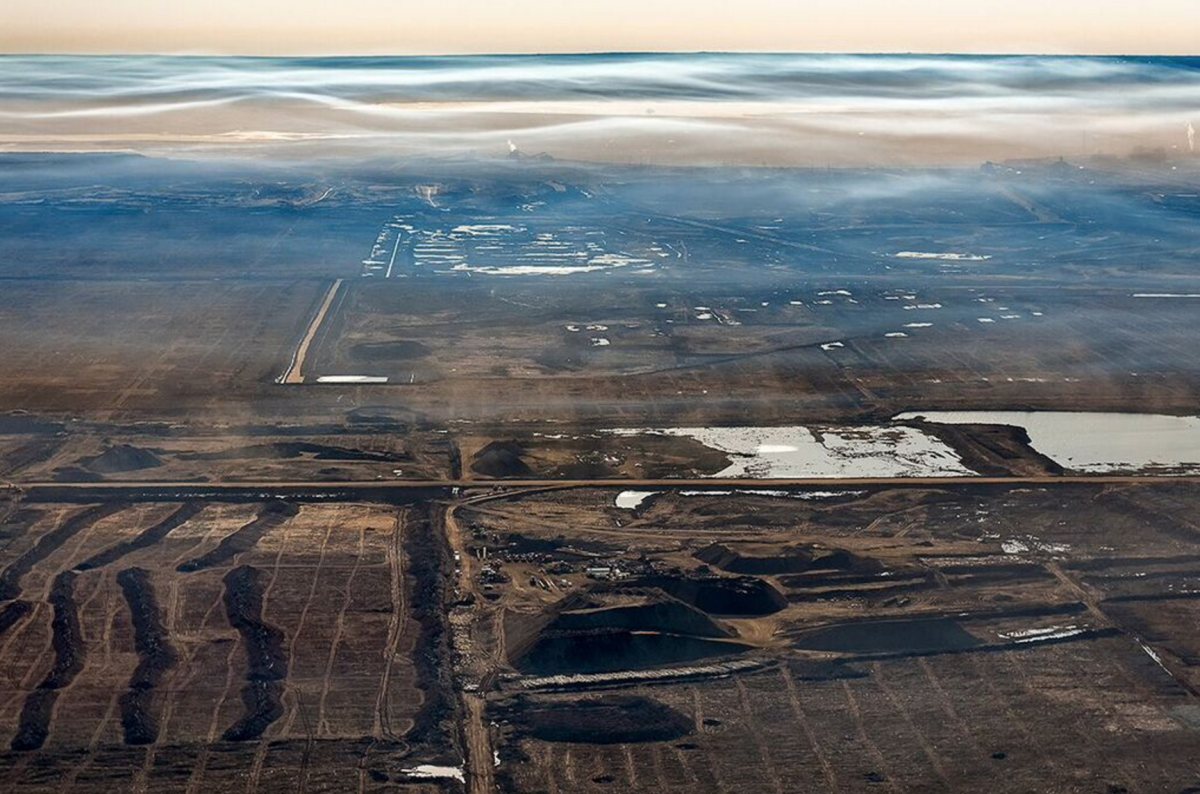European Union lawmakers today voted for the European Parliament to push ahead with a trade deal that could encourage Canadian tar sand oil imports and make it easier for energy companies to sue governments when environmental policies threaten their profits.
The U.K.’s international trade minister, Liam Fox, last year circumvented parliament to approve the Comprehensive Economic and Trade Agreement (CETA) between the EU and Canada. The deal now has to be approved by European policymakers.
MEPs in the committee charged with overseeing environmental regulation today voted 40 to 24 for the European Parliament to back the deal, Reuters reports. A final decision is expected in February.
Writing in The Ecologist ahead of the vote, Mark Dearn from campaign group War on Want said the deal had already “put rocket boosters under runaway climate change by bringing high-polluting tar sands oil into Europe”.
Reacting to the vote, he told DeSmog UK:
“The committee's decision on CETA is an utter disgrace. It flies in the face of a wealth of evidence showing CETA to be bad news for the environment, food and health - not least that the EU sacrificed its own climate change legislation to appease the tar sands demands of Big Oil companies and the Canadian and US governments.”
Campaigners are also concerned that the deal will make it easier for companies to sue governments that use environmental regulations to try and move their economies away from fossil fuels.
A mechanism called investor-state dispute settlements is included in the deal, and could allow companies to sue countries that ban tar sands oil. Companies have used the mechanism in Canada to oppose fracking moratoriums, and in Germany to protest the closure of nuclear power plants.
The Canadian government has also objected to E.U. chemical regulations on over 20 occasions between 2003 and 2011, EnergyDesk has previously revealed, leading to concerns that companies could use CETA to undermine those rules.
Editor's Note: National Observer has obtained permission to reprint this story, first published by DeSmog UK on Thurs. Jan. 12, 2017.






Comments
Yet another nail in the coffin for our planet.
Every one if these corrupt, greedy and vile politicians should be sacked and investigated for bribery. Starting with our own. Despite global protests and hefty Canadian opposition, Trudeau and co never spent one second on the promise to Consult. Ditto TPP and it's thanks to other countries that it hasn't come about. Trudeau's snarky comments showed his anger at it's failure. Very alarming article today about ships operating in Canada with waivers allowing foreign crews - Filipino sailors paid a couple of bucks an hour and working close to 300 hours a month. 104 more Canadians got sacked before Christmas to be replaced with foreigners. It's just the start with CETA. https://thetyee.ca/News/2017/01/12/Maritime-Workers-Protest/
It won't be highly experienced, well trained crews piloting huge LNG or oil tankers along our coasts, it will be overworked, underpaid, exhausted and probably ill-nourished indentured labourers with no idea about our waters. These ships will be registered out of Panama or Liberia to screw taxpayers, and will be impossible to sue when the inevitable happens. The owners will declare bankruptcy within 24 hours and taxpayers will pay dearly for the environmental devastation.
The chance that Canadian oil producers have to export heavy crude oil to the EU is pretty limited. The European refining sector faces continuing overcapacity; high operating costs; declining supplies of North Sea crudes; declining domestic demand for refined products (except for transportation fuels, whose demand is expected to remain essentially flat); and shrinking export markets (the U.S. East Coast gasoline market in particular).
The European refining sector has a small amount, around 350,000 barrels per day (b/d), or 2.3% of their total refining capacity (around 15 million b/d), of resid hydrocracking capacity. Of this capacity, it is estimated that 100,000 b/d is capable of processing the very heavy, high sulfur resid from Canadian WSC dilbit crudes.
The European refining sector has coking capacity of about 500,000 b/d which is about 3.5% of its crude distillation capacity compared to around 2.4 million b/d for the U.S. refining sector.
From 2008 to 2013, fifteen European refineries shut down. Three more, one in the UK and two in Italy, shut down in 2014. One refinery in Switzerland where some Canadian crude oil was shipped in the summer of 2014 closed last year (Globe and Mail, Nov. 02, 2014: "Oil Sands Crude Reaching Europe, Asia"). Several analyses published in 2014 suggest that bringing refining sector capacity into balance with market conditions will require reducing European refining capacity by another 2 to 2.5 million b/d by 2018-2020. European demand for refined products in general is projected to decline over the next twenty years.
The dismal financial situation and prospects of the European refining sector in general suggests that European refineries may be reluctant to undertake capital investments to process significant additional volumes of Canadian oil sands crude, even if discounted prices of these crudes and refining economics for such processing were to promise improvement in refining margins.
The primary export market for Western Canadian crudes, especially heavy crudes, is the U.S Midwest. The CAPP forecast suggests that increases in Western Canadian unconventional crude oil supply of about one million b/d can be absorbed in existing markets in Canada and the U.S., without recourse to exports to Asia or Europe. The Gulf Coast refining sector in particular could absorb all of Canada's forecast in supply out to 2030, displacing heavy crudes imported from the Mexico, Venezuela and other South American countries.
So, what's the motivation behind the MEP vote? Who is lobbying those members? What are they asking in return?